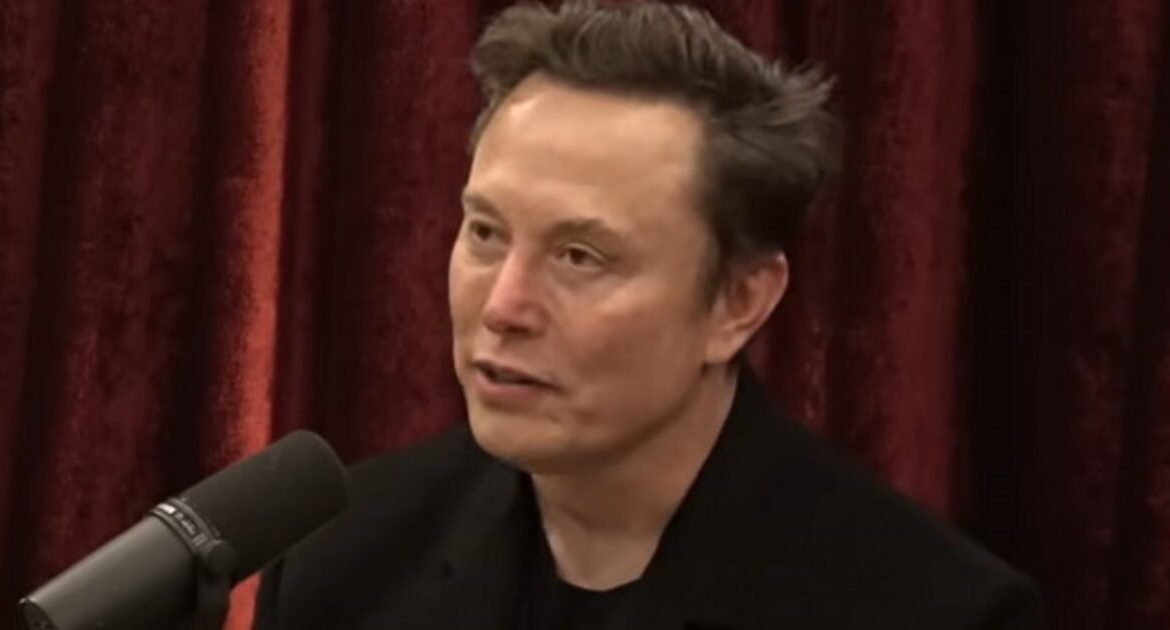

Guest post by Drieu Godefridi
Elon Musk, the man who defies the laws of earthly gravity and human bureaucracy, has just struck a major blow. On 28 March 2025, he announced that his artificial intelligence start-up, xAI, had acquired X, the social platform formerly known as Twitter, in an all-stock deal. The figures speak for themselves: xAI is valued at 80 billion dollars, X at 45 billion.
Beyond valuations, we are witnessing a strategic revolution, an ingenious maneuver that propels X beyond the reach of the European Union’s censors.
Grok, the Cognitive Revolution
Let’s start with the facts. xAI, founded less than two years ago, has established itself as a titan of artificial intelligence, rivaling giants such as OpenAI and Google DeepMind. Its flagship, Grok, is an AI of unrivaled power and lucidity.
Grok is not just a tool; it’s a cognitive revolution, capable of responding with a clarity and boldness that OpenAI’s ‘woke’ models or Microsoft’s polite algorithms can only dream of achieving. Musk himself has promoted Grok as an AI “seeking maximum truth,” and recent benchmarks – February 2025, Grok 3 – confirm this: in mathematics, science, and programming, Grok/xAI outperforms its competitors.
But back to the merger. X, bought by Musk in 2022 for 44 billion dollars, has weathered a number of storms: falling advertising revenues, an exodus of advertisers frightened by freedom of expression, and a rollercoaster valuation. And yet, with 600 million active users, X has become a power to be reckoned with, a “digital agora” where the truths that the “elites” of the Western left would prefer to suppress are expressed.
For months now, the European Union, armed with its Digital Services Act (DSA) and its desire to suppress dissenting opinions, has been threatening X with sanctions, fines, and even an outright ban. The bureaucrats in Brussels have never digested Musk’s refusal to bow to their censorious injunctions.
X = Grok = Good Luck EU!
And this is where the merger changes the game. By integrating X with xAI, Musk is not just uniting two companies; he is building a technological fortress. Hitting X now means hitting Grok. And Grok is not just a gadget application; it’s an AI that is becoming increasingly integrated into the European economy.
Companies across the continent – from start-ups in Berlin to manufacturers in Milan – are adopting its capabilities to optimize their processes, analyze their data, and compete with the American and Chinese behemoths.
The Colossus supercomputer, installed in Memphis and powered by 100,000 GPUs (Graphics Processing Units), provides xAI with computing power that Europe, with its aging infrastructures that are crumbling under castrating standards and killer taxes, cannot match.
Banning X would not only deprive Europeans of a platform that is essential to their freedom to inform and express themselves but would also sabotage access to an AI that is a pillar of what remains of their economic competitiveness.
Killing X = Killing the Economy
Let’s imagine for a moment that the EU, in a fit of authoritarian zeal, tries to ban X. What would happen? The millions of X users in Europe, and Grok users too, are left without a forum for debate. But above all, the European companies that depend on Grok – and there are more and more of them – are suffering a backlash. X’s data, which feeds xAI’s models in real time, is no longer flowing. And Europe, already lagging behind the United States and China in the AI race, is sinking further into technological and economic irrelevance.
The Eurocrats may brandish their tyrannical and arbitrary whims, but they know that such a scenario is untenable. Industrialists, innovators, and citizens themselves would howl at the betrayal.
Musk has pulled off a master stroke with this merger.
It’s not just a question of consolidating his assets or protecting his investors – although the maneuver, it should be noted, gives X’s creditors some breathing space after two years of strained debts. No, it is a declaration of war on institutionalized censorship. X, now under the aegis of xAI, is becoming a hybrid entity: both social media and strategic AI infrastructure.
Will the EU Cut Europe Off from the World?
So this merger is not just a financial transaction; it is first and foremost, a political act, a challenge to the regulators who aspire to bring Musk down.
This stroke of genius consecrates X as an impregnable bastion of freedom of expression, boosted by an exceptional AI. This reminds us of a truth that Brussels refuses to admit: tomorrow’s world will not be built by sterile technocrats but by visionaries who embrace freedom. Musk will be one of the architects of that world.
Between freedom and bureaucracy, freedom liberates, and bureaucracy oppresses.
Drieu Godefridi is a jurist (University Saint-Louis, University of Louvain), philosopher (University Saint-Louis, University of Louvain) and PhD in legal theory (Paris IV-Sorbonne). He is an entrepreneur, CEO of a European private education group and director of PAN Medias Group. He is the author of The Green Reich (2020).
You can follow Drieu on X.
The post xAI-X Merger: A Slap in the Face for European Censors appeared first on The Gateway Pundit.

